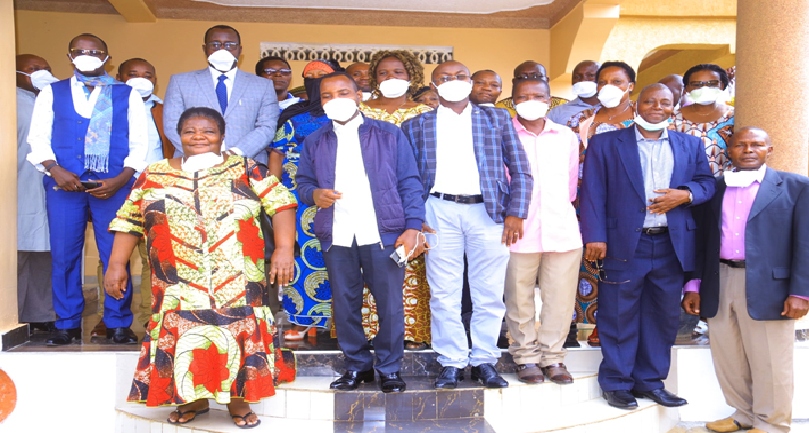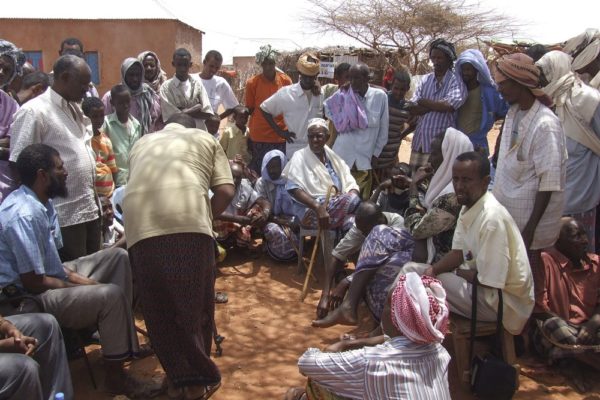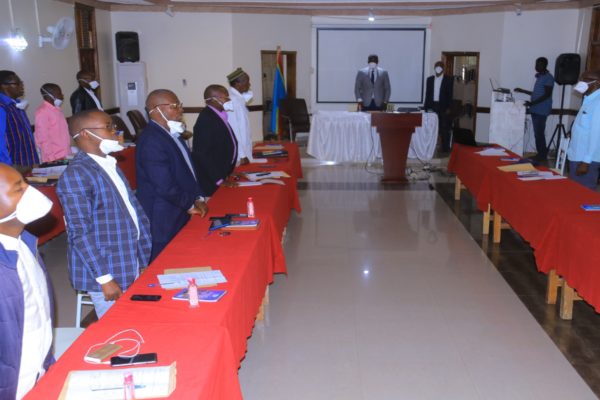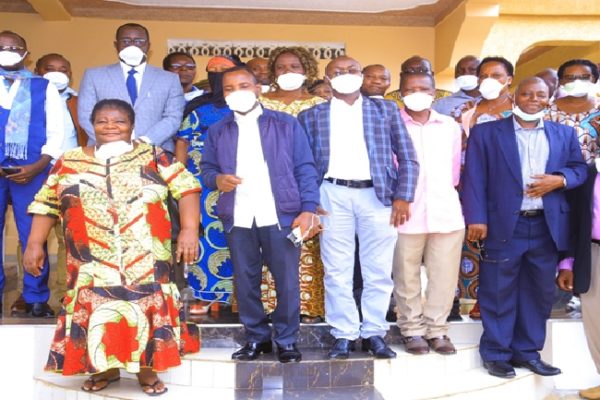Engaging communities to end violence in eastern DR Congo

Several violent confrontations in eastern Democratic Republic of Congo have killed, wounded, and displaced many people. Amid the armed conflict, humanitarian actors have been targeted by communities fearing and resisting interventions.
The spike in violence at a time when communities faced epidemics like the Ebola, and now the COVID-19 pandemic, has also forced people to flee for safety – making it difficult to control spread of the diseases. Responding to humanitarian needs during an epidemic can be challenging, especially if it creates conflicts within communities. The Interpeace team in Ituri is engaging communities to find opportunities for peace and enhance trust between communities and responders.

Crédit photo : Interpeace
Since November 2019, Interpeace is actively identifying and engaging, through a participatory and inclusive approach, various actors to collaborate in finding solutions to the violent conflicts in communities affected by epidemics in eastern DR Congo.
“We select them based on their availability and willingness to engage with Interpeace in building durable peace, their community’s acceptance, their capacity to critique research findings, and their leadership and influencing capacities at different levels from local to national scale. Inclusion is a very important criterion to ensure that everyone is represented, and the people engaged must be of good moral standing in society,” said Espoir Kitumaini, Interpeace’s Senior Programme Officer in Ituri.
The Interpeace team has facilitated consultation meetings of different actors in Bunia, Mandima, Komanda and Djugu communities, to share their concerns and propose solutions to address conflict drivers in their communities, including epidemics.
“Interpeace has brought us together with the parents and brothers of militiamen from Lendu community who kill our Hema families in Djugu. I’m thankful for this sitting today because some Lendu people have joined this project support group,” said Elegge Ibrahimu Bamaraki, leader of the Ente community.
“I call on Interpeace to continue its efforts, and especially for sincere dialogues without hypocrisy, so that this long-sought peace is found. Raise awareness among the parents, brothers, and sisters of these militiamen who leave Djugu in mourning, and those in Irumu to tell their children to lay down their arms. And Ituri will have true and lasting peace” said Mr Bamaraki.

Photo credits: Interpeace
The Interpeace team held meetings with the different stakeholders on 22 and 29 May in Bunia to validate the mandate of members of the project support group in the Ituri province. The meeting was attended by over 20 participants representing different local communities, civil society, academia, humanitarian organisations, religious, youth and women groups.
In his opening speech, the Provincial Minister of Planning, Pascal Karoraki said: “Inclusiveness is vital and can contribute effectively to the implementation of the tasks of members of the project support group in Ituri, and to get new strategies for seeking genuine peace.”
Building community trust is key to Interpeace work in support of response operations in eastern DR Congo. The inclusion and active participation of communities are the foundation for lasting peace.

Photo credits: Interpeace
“I did not know that some communities could meet in a room after the killings happening between communities in Djugu and Irumu. Thank you Interpeace for this meeting which brought us even closer,” said 50-year-old Ms Fatuma, Women Leader of the Mambasa community.
For decades, violent conflicts have killed thousands of people and displaced millions of others in eastern DR Congo. The violence and insecurity are major obstacles to humanitarian interventions and can reverse all positive gains already made in response efforts.
“I have understood that Interpeace wants to accompany the provincial government of Ituri in the search for peace, with a community engagement approach of the children of Ituri. Ituri will find its peace through its children, to begin with. Behold, the project support group set up and comprising representatives of different communities can help a lot to push this peace without hypocrisy,” explained Hon. Heritier Bahati, a 33-year-old elected member of the National Assembly and parliamentarian for Djugu.
This participatory community engagement project in Ituri is funded by the European Union (EU) Commission, through the EU Delegation in the Democratic Republic of Congo.

EUROPEAN UNION
